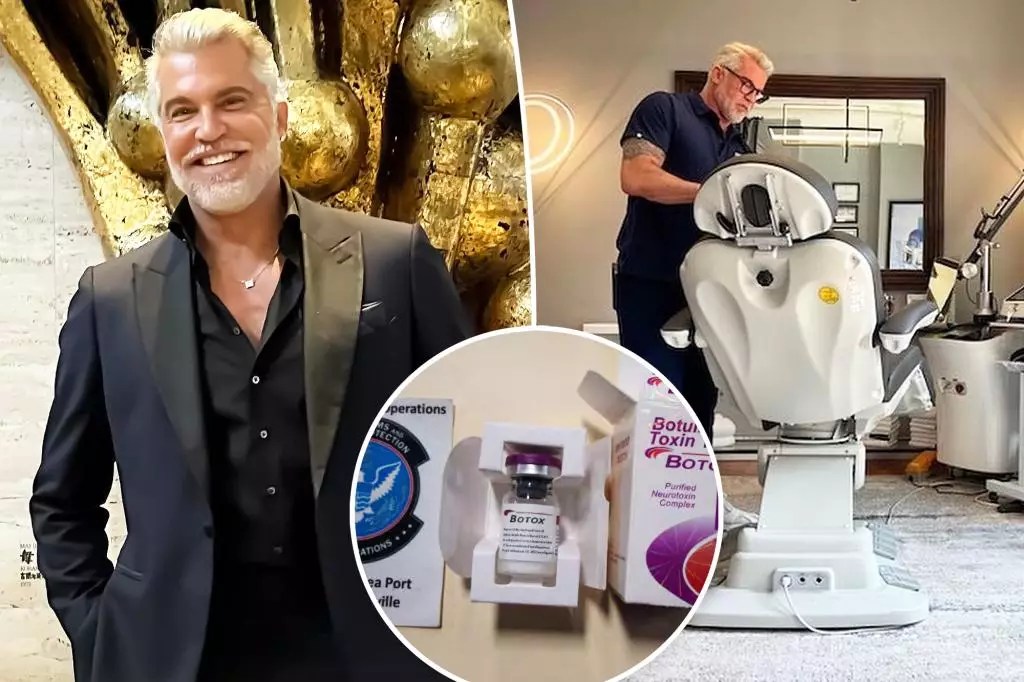In recent years, the pursuit of beauty has taken a sinister turn, as evidenced by the troubling case of Joey Grant Luther, an aesthetician accused of injecting clients with counterfeit Botox derived from overseas. The ramifications of this incident illustrate not only the dangers of unregulated cosmetic procedures but also the alarming trust clients place in practitioners who lack proper authority.
The aesthetic industry, particularly the world of Botox injections, thrives on the trust between professionals and their clients. Individuals seeking cosmetic enhancement often place their faith in practitioners, assuming that their qualifications are legitimate. Luther, who operated a medical spa called JGL Aesthetics, managed to mislead his clients by presenting himself as a qualified provider despite not holding the necessary medical licenses.
According to court documents, the fallout from his practices has been severe, with victims facing debilitating symptoms after receiving the counterfeit injections. Reports reveal that clients suffered from significant health issues, including double vision, difficulty swallowing, and heart palpitations—symptoms perhaps more fitting for a scene in a thriller than a beauty treatment gone awry. This case challenges the notion of informed consent; clients expected safety and efficacy but were met instead with deception and harm.
One particularly disconcerting aspect of Luther’s case is how pricing played a role in his appeal. Beauty is often accompanied by high costs, and many clients are drawn to more affordable alternatives—even when those alternatives come shrouded in clouds of skepticism. Luther’s pricing strategy—$300 per area—was attractive in a market where licensed professionals charge significantly higher fees.
This raises critical questions about the lengths to which people will go to achieve aesthetic goals. The allure of lower prices can cloud judgment and lead individuals down dangerous paths. Clients were ensnared by a potent mix of affordability and charm, perhaps overlooking crucial warning signs, which ultimately led to their distress.
The implications of Luther’s actions resonate particularly deeply within the LGBTQ+ community, which reportedly constituted a significant portion of his clientele. Many former clients expressed feelings of betrayal, grappling with the shock of being deceived by someone they had trusted. The emotional toll of this betrayal extends beyond physical health; it dismantles community trust and leaves individuals reeling in disbelief.
With a landscape that often celebrates aesthetics, the Luther case serves as a cautionary tale about the importance of vetting practitioners carefully. When charm replaces credentials, the results can be catastrophic, both for individuals and the community at large. The ramifications of Luther’s alleged actions are far-reaching, touching on the intersections of health, beauty, and ethical practice.
Following his arrest, Joey Grant Luther faces serious legal challenges, including charges of wire fraud and distributing counterfeit drugs. As the case unfolds, it underscores the pressing need for stricter regulations in the beauty industry, which remains fraught with loopholes that can be exploited by unscrupulous individuals.
The case has propelled discussions about regulatory reform, emphasizing that the beauty industry, especially minimally-invasive procedures like Botox, requires stringent oversight to protect clients. The fear going forward is that without systemic changes, further tragedies may occur in similar fashion, robbing individuals of their health and well-being in their pursuit of beauty.
The saga surrounding Joey Grant Luther serves as a harrowing reminder of the potential dangers lurking in the ever-expanding world of aesthetic enhancements. As clients continue to seek beauty, an urgent call to action is needed to ensure that they do so safely, with licensed professionals they can genuinely trust. The pursuit of aesthetics should not come at the cost of health and integrity; the industry, and society, must enforce rigorous standards to prevent further episodes of betrayal and harm.


Leave a Reply